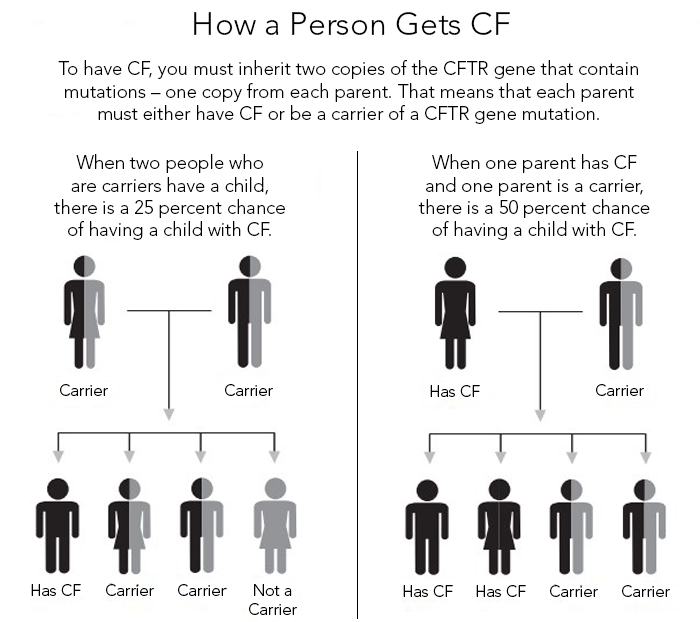To have cystic fibrosis, a child must inherit one copy of the cystic fibrosis transmembrane conductance regulator (CFTR) gene mutation from each parent. People who have only one copy of a CFTR gene mutation do not have CF. They are called "CF carriers."
Each time two CF carriers have a child, the chances are:
- 25 percent (1 in 4) the child will have CF
- 50 percent (1 in 2) the child will be a carrier but will not have CF
- 25 percent (1 in 4) the child will not be a carrier of the gene and will not have CF
People with CF can also pass copies of their CF gene mutations to their children. If someone with CF has a child with a CF carrier, the chances are:
- 50 percent (1 in 2) the child will be a carrier but will not have CF
- 50 percent (1 in 2) the child will have CF
My Baby Is a CF Carrier
If your baby's newborn screening results found one CF gene mutation and the sweat test was negative (normal), your baby does not have CF. A test result of one mutation means that your baby is a CF carrier. A CF carrier is healthy and does not have the disease.
We encourage you to talk with your child when he or she is old enough to understand genetics. It will be important for your child to know that he or she could pass the CF gene mutation to his or her future children. His or her partner might want to get CF carrier testing if they plan to have children.
CF gene mutations are shared in families. Because of this, you should tell your blood relatives that they could be carriers of a CF gene mutation, so that they and their partners can decide if they would like to be tested.
You and your child can discuss being a CF carrier with your child's doctor, a genetic counselor, or a genetics nurse specialist when your family is ready for that conversation.
Researchers are making rapid progress in understanding CF genetics. Much more will be known about CF genetics when your child is ready to have children.
